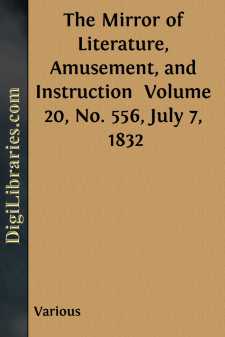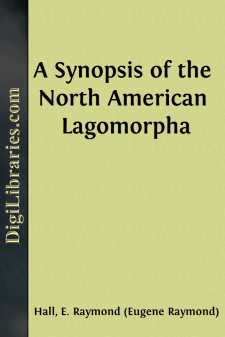Categories
- Antiques & Collectibles 13
- Architecture 36
- Art 48
- Bibles 22
- Biography & Autobiography 813
- Body, Mind & Spirit 142
- Business & Economics 28
- Children's Books 17
- Children's Fiction 14
- Computers 4
- Cooking 94
- Crafts & Hobbies 4
- Drama 346
- Education 46
- Family & Relationships 57
- Fiction 11829
- Games 19
- Gardening 17
- Health & Fitness 34
- History 1377
- House & Home 1
- Humor 147
- Juvenile Fiction 1873
- Juvenile Nonfiction 202
- Language Arts & Disciplines 88
- Law 16
- Literary Collections 686
- Literary Criticism 179
- Mathematics 13
- Medical 41
- Music 40
- Nature 179
- Non-Classifiable 1768
- Performing Arts 7
- Periodicals 1453
- Philosophy 64
- Photography 2
- Poetry 896
- Political Science 203
- Psychology 42
- Reference 154
- Religion 513
- Science 126
- Self-Help 84
- Social Science 81
- Sports & Recreation 34
- Study Aids 3
- Technology & Engineering 59
- Transportation 23
- Travel 463
- True Crime 29
Sort by:
FOREWORD Once upon a time as four blind men sat by the roadside they heard the tramp of an elephant’s feet, and said one to another, “Here comes an elephant; now we shall know what he is like.” The first blind man put out his hand and touched the elephant’s broad side. The second took hold of a leg. The third grasped a tusk, and the fourth clutched the animal’s tail. “Now do you know what...
more...
hen did the headaches first start?" asked the neurologist, Dr. Hall. "About six months ago," Bennett replied. "What is your occupation, Mr. Bennett?" "I am a contractor." "Are you happy in your work?" "Very. I prefer it to any other occupation I know of." "When your headaches become sufficiently severe, you say that you have hallucinations," Hall...
more...
by:
Various
SURREY ZOOLOGICAL GARDENS.CIRCULAR BUILDING FOR LIONS, TIGERS, &c.INTERIOR OF CIRCULAR BUILDING.ROCKWORK FOR BEAVERS, &c. SURREY ZOOLOGICAL GARDENS. [Although the reader will scarcely fail to recognise the typographical amendments contemplated in the Preface to our last volume, we may be allowed to point attention to the most important change. To give our souls "elbow-room," we have...
more...
by:
Anonymous
NAUGHTY PUPPIESTiny and his Parents.There were two little puppy dogs,“Tiny” named, and “Toodles,”Who got into all kinds of scrapes,Like little foolish noodles.Tiny was a brownish dog,And Toodles was a white one;And Tiny had a cunning eye,And Toodles had a bright one.Tiny played all kinds of tricks.For which his parents chid him:And Toodles did—poor, foolish pup—Whatever Tiny bid him....
more...
Chapter One. âWhat! Ned Raymond ahoy! Heave to, lad. What! dost seek to give a wide berth to an old friend? That once was not your wont. Ned Raymond ahoy, I say!â The slight dark moustache on the lip of the person addressed showed that he had just reached the age of manhood. His raven hair hung in ringlets from his head. A black velvet cloak thrown over one shoulder, and a tightly-fitting...
more...
FOREWORD Pirates, Buccaneers, Marooners, those cruel but picturesque sea wolves who once infested the Spanish Main, all live in present-day conceptions in great degree as drawn by the pen and pencil of Howard Pyle. Pyle, artist-author, living in the latter half of the nineteenth century and the first decade of the twentieth, had the fine faculty of transposing himself into any chosen period of history...
more...
The most popular small game mammal in nearly every part of North America is one or another of the species of rabbits or hares. The rabbit is one of the few species of wild game that still is hunted commercially and sold for food on the open market. The close association and repeated contact of man with these animals has resulted in his contracting such of their diseases as are transmissible to him....
more...
by:
Herman Bernstein
FOREWORD This is the history of a Lie—of a cruel and terrible Lie invented for the purpose of defaming the entire Jewish people. Given out as fiction, by a German anti-Semitic writer, involved in the Waldeck forgery case, who concealed his identity under the pen-name of an Englishman, it was gradually changed and elaborated, and finally groomed as fact. Agents of the Russian secret police department...
more...
by:
Richard Mead
THE PREFACE. This Book having at first been written only as a Plan of Directions for preserving our Country from the Plague was then very short and concise. An Act of Parliament being immediately after made for performing Quarantaines &c. according to the Rules here laid down, it passed through seven Editions in one year without any Alterations. I then thought proper to make some Additions to it,...
more...
PRELUDE Night on bleak downs; a high grass-grown trench runs athwart the slope. The earthwork is manned by warriors clad in hides. Two warriors, BRYS and GAST, talking. Gast.This puts a tall heart in me, and a tuneOf great glad blood flowing brave in my flesh,To see thee, after all these moons, returned,My Brys. If there's no rust in thy shoulder-joints,That battle-wrath of thine, and thy good...
more...











